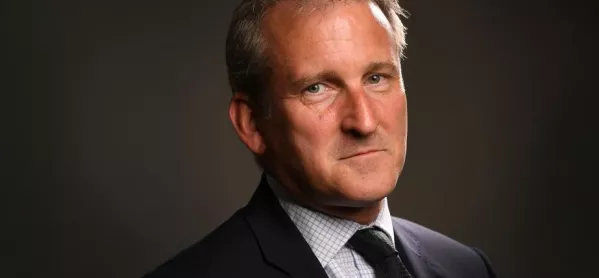Schoolchildren as young as four will not be taught about gay and transgender relationships as part of new compulsory lessons, ministers have insisted.
New curriculum guidelines announced by the government will introduce dedicated lessons about relationships, keeping safe on the internet and looking after their own mental health.
The Sunday Times reported these would include compulsory lessons about gay and trans people for primary school children as young as four.
Draft guidance said: “Schools are free to determine how they address LGBT-specific content, but the Department recommends that it is integral throughout the programmes of study.”
But it added: “As with all RSE [relationships and sex education] teaching, schools should ensure that their teaching is sensitive, age-appropriate and delivered with reference to the law.”
Today, education secretary Damian Hinds said that primary school pupils would be taught about “respectful relationships” and respect for all kinds of people.
When asked, on ITV’s Good Morning, if this included teaching children as young as four or five about gay and transgender relationships, he said not at that age.
“We are saying that in primary school, they should learn about respectful relationships,” he said.
“When you start to talk about different adult relationships, that has to be done in an appropriate way. It is not about saying this stuff all happens at the age of five.
“At a young age, what we are talking about is having respect for all kinds of people. You have to have respect for all the different families you come into contact with.
“Nobody is suggesting that there should be these difficult conversations with children at that age, but relationships in the broader sense - friendships, interactions and how you interact with other children and adults - that’s very important from a very young age.”
Health and relationships lessons will form part of the school curriculum in England from 2020 as part of the first shake-up of sex education for two decades.
School children will learn about physical and mental health, as well as relationships, from primary school.
Secondary pupils will also be taught about sex and relationships under plans designed to make RSE more relevant to modern life.
Some, however, have taken issue with the plans. Some religious groups have led a vocal campaign against proposals to teach about LGBT issues and same-sex marriage.
On Monday, MPs will debate a petition calling for parents to have the right to opt their child out of relationship and sex education.
The petition, which has gathered more than 100,000 signatures, says parents have a “fundamental right” to decide what their children learn in RSE.
It added: “We have grave concerns about the physical, psychological and spiritual implications of teaching children about certain sexual and relational concepts proposed in RSE and believe that they have no place within a mandatory school curriculum.”




